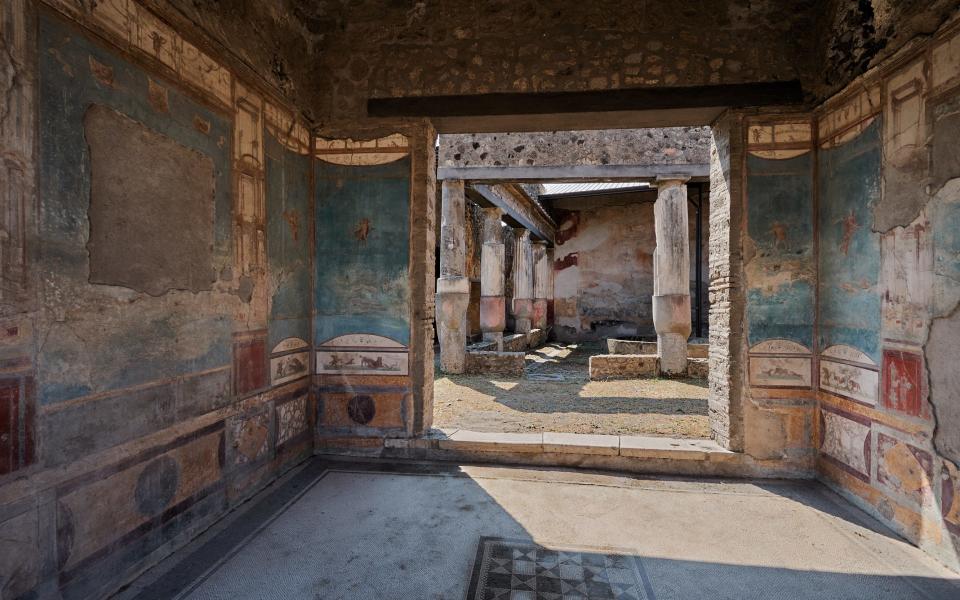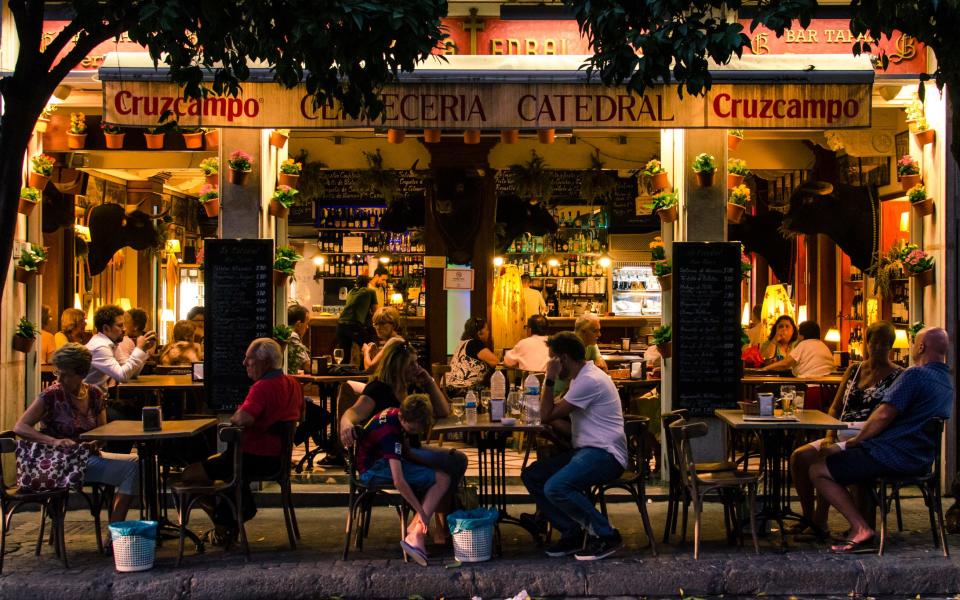The sad demise of the school trip, a rite of passage for millions

Among victims of Covid – a minor victim but a victim all the same – is the school trip. As a sports teacher acquaintance of mine said: “It’s depriving many kids of their only opportunity to see something other than their homes and schools.”
Spot on. Lord knows, when teens, we could all use a break from home and school. The school trip affords an early encounter with the world out there – its wonders, worries and scope for skulduggery. It’s a halfway house, without parents but nevertheless accompanied. Though the accompaniment may be erratic. An A-level teacher recalls getting so fed up with kids sneaking out of the hostel at night that she took to sleeping in the corridor to keep an eye on them. This wasn’t as successful as anticipated. “They waited until I dozed off, then stepped over me,” she said.
Which is, though, another positive element of the school-trip – the revelation that teachers might not simply be adults who blight one’s life with irregular German verbs or trigonometry before repairing to some hellish teacher cave somewhere. On a school trip, they may give every indication of being human.
These trips are, then, both rites of passage and discovery experiences in real-world conditions. On a school Mediterranean cruise, I learned lasting lessons: that Pompeii had had pubs, that the Barbary macaques on Gibraltar were vicious little blighters, and that one should never rely on team-mates in quizzes. In the on-board, interschool comp, our four-boy team had made the final. We were neck-and-neck with a bunch from, I think, Yorkshire. Last, deciding question: “Which Victorian organisation was founded to look after poor and deprived children?” Team-mate One knew. He really, really knew. He would answer. “The Salvation Army,” he said.
This was decades ago, but I can still recall my teenage fury (much still to learn about proportionate responses, then). “Dr Barnado’s,” said a Yorkshire lad, smirking as only Yorkshire lads can. Team-mate One only got away with his life because a teacher stepped in. That’s another good thing about school trips: teachers can dilute the more Lord-Of-The-Flies elements.

But learning is ceaseless. I’ve talked to a few people on the subject this week. School trips marked them indelibly – from undergoing a first period in the Pigalle McDonald’s of Paris to being left behind in a Ladies’ loo in Berlin by an absent-minded teacher, through to learning that the French short version of Coca-Cola isn’t “coke”. It’s “coca”. (“We’d been set free for lunch. I ordered a coke in a bistro, the bloke was puzzled, took a very long time and then reappeared with a plateful of coq-au-vin.”)
Comestibles, in truth, set schoolkids on the steepest of learning curves. Even today, when youngsters know everything, they may still be destabilised by snails, seafood and the slithier continental dishes. Decades ago, almost everything across the Channel was odd, often coming without chips, sliced white bread or salad cream. “My hostess served, us from a big tureen,” recalled a survivor off the 1960s. “‘Lapin!’ she said. What? No idea. So she put her hands on the side of the top of her head and wiggled them. Ears! Rabbit! I didn’t know that you could even eat rabbit, not for real. I made it to the bathroom just in time.”
Pigs’ feet and thrush pâté, chitterling sausage and oysters have all served to broaden the minds of the people I spoke to – broadening the minds but without necessarily filling the stomachs. Emptying them, more like. Artichokes, too, proved a challenge. “It sat on the plate like a hand grenade. Defiant. I set about it with a knife and fork. The host family said, ‘You’ve never eaten artichoke before?’. Never eaten it? I’d never heard if it.”

Learning worked the other way round, of course. Marmite, pickles and sandwich spread have evidently confounded more than one foreign youngster. Meanwhile, an Italian acquaintance recalls his last evening on a school trip to Lancashire. As an Italian-style treat, his hostess served Heinz spaghetti hoops on toast. “Do you eat this often in Milan?” she asked. “No,” he said, “Almost never.” I still hear from him sometimes and, to this day, he talks of his introduction to spaghetti hoops on toast as a key to the understanding of Britain.
All this explains, though, why school trip participants, given moments of freedom and half a chance, invariably make for McDonald’s. The fast food restaurants are ubiquitous, neutral ground with food familiar to kids of all nations and thus a key element in the fostering of youthful brotherhood.
Then again, international youth may also find common ground in the drink element of foreign gastronomy. It’s easier to understand. From what I’ve seen, heard and lived, there isn’t a street in any European city, town or village which hasn’t been staggered down by older British schoolboys relishing the discovery of continental café culture. Slipping the leash together forges bonds, and the great thing about school trips is that this might be the first serious leash-slipping, so youngsters get sick before they can get violent. The other lesson is that pastis might taste like liquorice cordial, but isn’t.
There are problems, of course. You can’t cart 13-17-year-olds across national frontiers without them. A mid-teen German chap we welcomed to our house arrived with a collection of Japanese throwing stars and his own supplies of tobacco and spirits. His teachers had warned us that he was a difficult child, but we hadn’t expected him to turn up to dinner drunk – or to have to lock our (older) daughter’s bedroom door. Our own son decided he wouldn’t make the return visit to Bavaria, given that the German lad’s family stories all involved arson, theft or heavy beatings.
Mind you, I’d already had evidence of the Germans being well ahead of us, years before, when – a 15-year-old myself – my family hosted a 15-year-old German girl on her school trip. She was called Heike. I assumed that she would be as gawky and ill-assorted as my adolescent self. So did my parents. Big mistake. When she arrived, it was clear that she was Marlene Dietrich in all but name and age. She had blonde hair, wore form-fitting clothes of startling smallness – as if preparing for an evening in the Berlin cabarets – cadged my father’s cigarettes and wondered what sort of cocktail people in rural Lancashire took as an aperitif, for she was keen on knowledge. “Tea,” snapped my mother. My father opened the only bottle of gin for miles around. And I slunk about awe-struck at a dimension of girlhood quite different to the Eileens and Maureens of my world. Great girls, both, but you couldn’t imagine them holding centre-stage at The Blue Angel.
This was troubling – I wasn’t sure which direction to take after Heike declined badminton in the garden – but also a useful eye-opener. Probably as useful an eye-opener as anything associated with school trips ever afforded me.
But, as we have seen, school trips also allow the teaching staff to come into their own – from the classics mistress using her Latin when things went awry with host families in Rome to teachers from Marseille getting ambushed by drink in a bar in Seville. “One last one” lasted until 3am. Next day, kids and teaching staff were due to make a video. My friend got up, handed the camera to one of the youngsters and went back to bed. “Don’t worry, Miss,” she was told on the coach back home. “The secret’s safe. We don’t grass in Marseille.” (It is, she says incidentally, a defining characteristic of school groups on coaches that they smell of “a combination of chemically-flavoured crisps, feet and vanilla deodorant”.)

There is, in short, much fun and instruction to be had on school trips. But, as the sports teacher said up top, there’s also a serious side. Nowhere is this more evident than on the First and Second World War battlefields. School trips fan out across the lands of Northern France and Belgium where their scarcely older forebears got shot to hell. It is moving to see a score of youngsters, full of bounce, get off their coach at, say, the Thiépval British memorial – and fall suddenly silent. Abroad and its history just went real. A few years back, I bumped into a group from Simon Langton Girls’ Grammar in Canterbury. They were on the Somme as part of their A-level studies of the Great War poets. One of them put it succinctly: “Sometimes the poetry can go a bit over your head. But it means so much more when you’re actually here.”
There we have the justification for almost all school trips. It would be splendid if they should kick off again soon.
What do you remember of your school trips? Please share your recollections using the comment box below.


